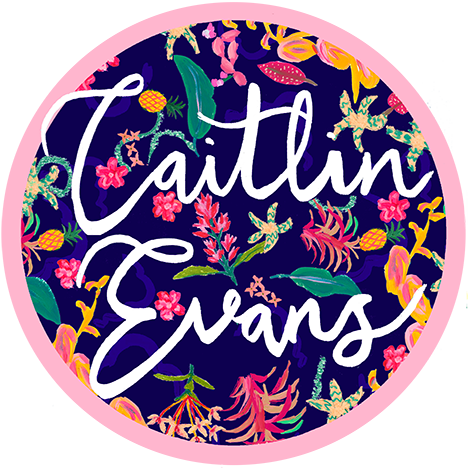There is a devastating amount of waste produced within the UK. This waste stems from society portraying overconsumption as the accepted way of living. A number of large companies are selling shockingly cheap products, made overseas where they can pay an unfair wage to factory workers. The production costs are so minimal, companies are in a position where it is cheaper to throw away or burn returned and outdated products rather than donating to people in need. Over recent years people have become more aware of what they are buying. As consumers we have the power of choosing where we shop and where possible can exercise our choice to support ethical brands.
The concept behind my interior brand Caitlin Evans is that my products are unique timeless pieces of art made with the intention that people will treasure them. The products are so beautiful that they won’t go out of fashion and will remain in customer’s homes for the long term. This challenges the throwaway society we live in, by investing in items you love rather than purchasing cheap items that in a year or two will be replaced.
One of the problems with purchasing cheap products made overseas is that there is no sense of transparency on where it was made and who it was made by. This means consumers have very little personal connection with that product. All of my products are designed by myself in London and are printed and made in the UK, with some of the products being handmade by myself. Other products are made by a professional local seamstress and paper giclée prints are printed by a local printing business. This means the consumer knows where the product has been made. Furthermore, all of my products are made in small quantities or made to order so there is no waste.
Rather than using synthetic fabrics like polyester, my interior products are made using natural fibre fabrics. These include 100% silk, cotton velvet and GOTS certified organic cotton. The fabrics are digitally printed in Evesham in the UK with all the fabrics produced in UK mills. Not only are the fabrics printed within the UK, digital printing has been proven to be more environmentally friendly than more traditional methods of printing. The printing method is directly onto the fabric meaning less wasted surplus ink. There is less use of chemicals and water than traditional methods. The dyes that my printing company uses are certified as Azo dye-free. All of their fabric offcuts are sent to a recycling specialist who shreds them and uses the resulting fibre as bioenergy, to create electricity, or the fabrics offcuts are donated to education and charity facilities.
Being part of the textile industry, I believe I should do my part to help protect the planet. As consumers we can also make conscious decisions to shop with small ethical brands.

